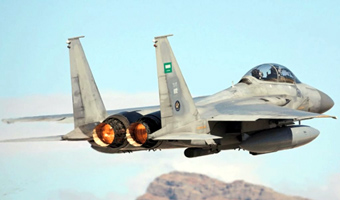
Yemen’s Rapid Meltdown
| published March 26, 2015 |
By Thursday Review staff
The White House told reporters on Thursday that Yemen is a shining example of the anti-terrorist policies of the administration of Barack Obama, and White House spokesman Josh Ernest says that the central government of Yemen still has the capacity to “take the fight to the extremists in their own country.”
The White House’s position, while sharply at odds with the on-the-ground situation now facing Yemen—a country bordering Saudi Arabia—came in response to a question from ABC News’ Jonathan Karl.
But as incredulous reporters in the room noted, there is no central government in Yemen.
The situation in Yemen has quickly morphed from chaotic to total meltdown. Yemen’s President Abed Rabbo Mansour Hadi is on the run for his life, pursued by rebels and militants as Islamic radicals advertise a high-priced bounty for his capture.
Hadi had earlier fled Yemen’s capital, and set up a temporary post for governing in the city of Aden. But rebels are determined to capture Hadi (weeks ago, militants had negotiated a deal where he could leave Sanaa unharmed), and have already arrested others within his cabinet, including the Defense Minister. Hadi has now abandoned his Arabian Sea estate and—surrounded by loyal bodyguards and Yemeni soldiers—evacuated in a convoy of heavily armored SUVs and trucks, presumably intending to flee the country. Some media agencies were reporting that Hadi fled by sea in the early hours of Thursday.
Saudi Arabian forces shelled rebel positions on Thursday. This week rebels captured a key U.S. air base, used as recently as two weeks ago by American and European military advisors in the fight against al Qaeda. Rebels also control several radio and TV stations.
Anti-Hadi rebels in Yemen are mostly Shiite, and their piecemeal takeover of the small Arabic country could lead to further destabilization on the Arabian Peninsula. Yemen shares long stretches of desert border with Saudi Arabia, a key U.S. ally and one of the world’s largest suppliers of oil. Yemen also shares a border with Oman, another oil producing nation. And Yemen sits at the southernmost tip of the Arabian Peninsula, meaning it has strategic importance to the region for its control of sea lanes at the southern end of the Red Sea.
Yemen’s collapse has deeper ramifications for the United States and its allies, since the government of Yemen had been a key partner in the regional battle against al Qaeda and terrorism. Yemen’s collapse may create a wider, safer haven for terrorism, and—if rebels install a rabidly-anti-Western government—the area might easily become a safe-haven for state-sponsored terror.
Some reporters were openly contemptuous of Ernest’s response to Karl’s question, and the follow-up questions of other reporters. Other analysts have pointed out the irony of simultaneously bargaining with Iran over a potentially dangerous nuclear arsenal, even while Iran openly supports and funds Shiite-backed rebel offensives and terror operations in Yemen.
Yemen’s collapse may also have a short-term effect on oil prices, especially if Saudi Arabia becomes jittery over the chaos just across its southernmost border. In London, markets responded by pushing oil prices higher (the first major price increase in many months of generally declining prices), though some oil and gas analysts suggest that as long as worldwide supplies remain at their record highs, prices will continue to gradually decrease.
Saudi Arabia may be drawn into Yemen’s conflict as the civil war becomes more violent. On Thursday, the Saudi military used fighter jets to bomb some of the military installations now occupied by rebel forces. Riyadh said it was seeking support from other Sunni countries in a coalition to oust the rebels and terrorist operations from Yemen.
Iran formally protested Saudi Arabia’s interventions in Yemen, calling the airstrikes “an invasion,” and condemning the attacks for their high collateral damage; reporters on the scene said that some residential homes had been destroyed near airports and other key locations. Iran backs the mostly Shiite rebels—known in Yemen as the Houthis—and the branch of al Qaeda which has taken root in the southern areas of the Arabian Peninsula.
Saudi Arabian state media were also reporting the deployment of some 150,000 Saudi military personnel to the region in what Riyadh called “Operation Decisive Storm.”
Related Thursday Review articles:
Canada Expanding Its Fight Against ISIS; Thursday Review staff; Thursday Review; March 24, 2015.
Egypt Strikes ISIS Targets in Libya; Thursday Review staff; Thursday Review; February 16, 2015.
